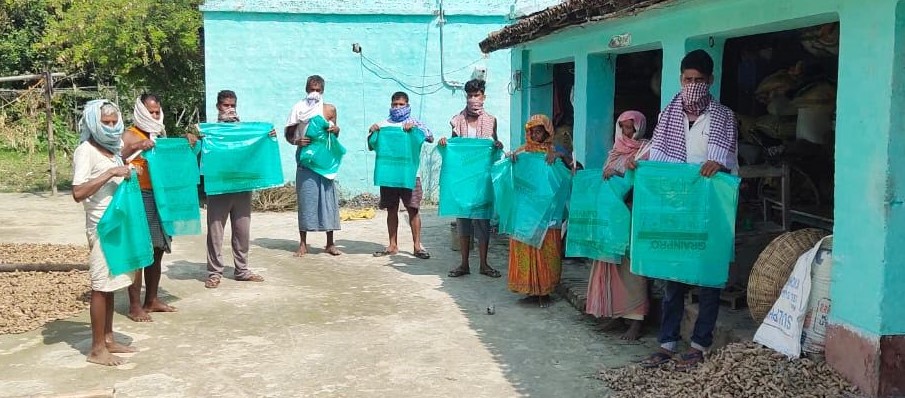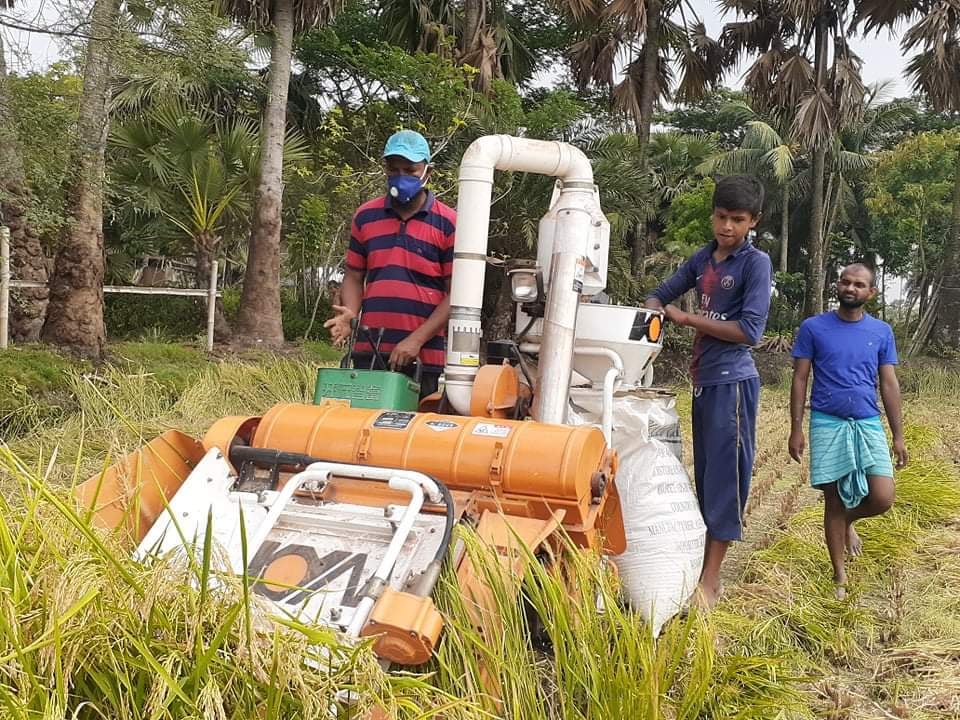ADMI partners work to help farmers during pandemic
Although the crops have grown well in India and Bangladesh this year, a complication in the form of a global pandemic now threatens what should have been a successful spring harvest season.
India and Bangladesh have both been under lockdown since late March. Movement restrictions have helped to control the spread of the coronavirus, but the negative effects on the livelihoods of smallholder farmers are undeniable. This is the rabi (spring) harvest season for vegetables, fruits, and grain in India and the Boro harvest season for rice (paddy) in Bangladesh. In both cases, the coronavirus has undermined markets in ways that jeopardize the crops. Like farmers and traders, ADMI project affiliates in both countries have had to halt many activities to comply with the lockdown, but research staff have been helping farmers face these challenges by accelerating the use of technologies promoted by ADMI.
Coronavirus has disrupted cereals supply chains throughout South Asia. As a result, more harvested grain is remaining in rural communities than is normal, straining the capacity to store grain safely. To address this challenge in state of Bihar, India, ADMI-sponsored staff at Dr. Rajendra Prasad Central Agricultural University (RPCAU) have distributed hermetic grain storage bags to farmers in seven villages to allow safe on-farm storage of this season’s crop. Vishal Kumar, assistant professor at RPCAU and investigator in the Climate Smart Villages (CSV) project, reports that 475 households have received a total of 1,900 hermetic bags already.

Earlier this year, field investigators visited households in CSV communities to explain to them the benefits of hermetic bags. Coronavirus initially impeded planned bag distribution, even as it intensified the need for safe, local storage. Nonetheless, the project field investigators have persevered and developed safe methods to both distribute bags and demonstrate their use, a few farmers at a time, in many more CSV communities. Three of the project villages, however, have been completely locked down due to the presence of a coronavirus case, and field teams have been unable to reach farmers in those communities.
In Bangladesh, harvesting the Boro season crop usually depends on seasonal, migrant labor from around the country. Measures to control coronavirus have restricted this labor movement and even in situations where farm laborers are allowed to work, many fear reprisals if they do go outside their homes. As a result, smallholder farmers have struggled to hire the workers they need to bring in the harvest. To confront this threat, ADMI colleagues at the Department of Farm Power and Machinery at Bangladesh Agricultural University (BAU), have been deploying combine harvesters to help local farmers bring in the crop while maintaining safe social distancing.

Thanks to advocacy from ADMI partners at BAU, the government of Bangladesh has approved a subsidy for combine harvesters, reducing the price to buyers by about half. The small-scale harvesters reduce postharvest loss and decrease the number of laborers needed to bring in the crop, an especially critical issue in this pandemic year. Through ADMI’s partners at BAU, farmers in Bangladesh have also continued to benefit from expanded access to the BAU-STR grain dryer, which improves the condition of grain being stored until sales are possible, and to receive one-on-one training to prepare seedlings for machine transplanting.
Although many ADMI activities have been paused due to coronavirus, ADMI partners in India and Bangladesh are working to help smallholder farmers complete essential farm operations. Their activities show clearly how postharvest interventions can build critically important resilience and security among vulnerable populations around the world.